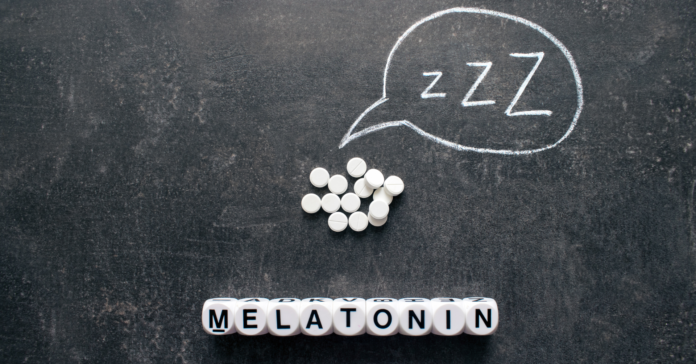Everybody wants to sleep more soundly. Although you are aware that you should turn off your technology an hour before bed and even stretch, there are occasions when you require a little extra support. Melatonin may be a decent alternative if you’re looking for an over-the-counter sleep aid. Here is what experts say you should know before giving it a try.
Melatonin is a natural hormone
A healthy lifestyle is extremely dependent on getting a good night’s sleep. You might be tempted to take melatonin for sleep if you have trouble getting enough sleep at night. But did you know that your body already contains melatonin? The body’s pineal gland produces melatonin naturally, according to the Sleep Health Foundation. The pineal gland, which is about the size of a rice grain and is situated above the centre of the brain, is small.
Because the pineal gland is inactive throughout the day, levels of the hormone are hardly detectable. The pineal gland, however, “turns on” and starts to create melatonin as the sun sets, usually about 9 p.m. The effect is a rapid increase in the hormone’s blood levels and an increase in sleepiness. Before the dawn of a new day, when they return to low daytime levels, those blood levels remain raised for around 12 hours during the course of the night.
It’s not a cure for insomnia
The supplement can be used to address sleep issues, but it won’t help you stay asleep; it can help you fall asleep, but it’s not a cure for insomnia. Seasonal affective disorder (SAD), jet lag, and managing sleep patterns for shift workers are a few problems that melatonin can help with.
There’s no reason you can’t continue taking the supplement for a very long time if you react favorably to it, but relying on it excessively could have adverse effects. According to sleep expert Dr. Andrew Westwood, it “can de-sensitize your receptors so they are no longer responsive to lower doses of melatonin.” Then, if you stop taking the supplement, you can have trouble falling asleep and need more and more of it.
There is no one recognised dose
Australian doctors typically prescribe melatonin in doses ranging from 0.5 mg to 5 mg. The most widely used preparation in Australia, according to the Sleep Health Foundation, comprises 2mg. Like naturally occurring melatonin, it has a gradual release form that lasts all night.
Effects are still up for debate
There are no immediate adverse effects of melatonin, but some people have headaches, nightmares, or lingering sedation the next morning, claims Dr. Sanjeev Kothare, an expert in sleep disorders. Because most trials have been conducted for short periods, frequently less than six months, Dr. Rowley continues, it is unclear whether there are long-term negative effects.
It might be harmful during puberty
The hypothalamus and pituitary glands, which are important in pubertal development, are just two of the areas of the brain and body that melatonin affects. A pediatrician should be consulted by parents regarding their child’s sleep issue. According to endocrinologist Dr. Brunilda Nazario, “the hormone is naturally reduced during puberty and changing this pattern with an unregulated compound and without supervision can potentially result in harm.” In order to help someone with sleep problems, it’s crucial to try and identify the cause of their lack of sleep and remove any contributing variables.
It’s not the only solution
Be aware that there may be an alternative to taking supplements to help you sleep before you do. In addition to practising excellent sleep hygiene, there are many treatments to assist in restoring regular sleep patterns. Dr. Nazario advises avoiding late afternoon or evening naps, avoiding stimulants that generate blue light (turn off those screens and place them far from your bed), and going to bed at the same time every night. She advises, “You might want to start with other natural remedies, like chamomile and hops tea or valerian root.”


